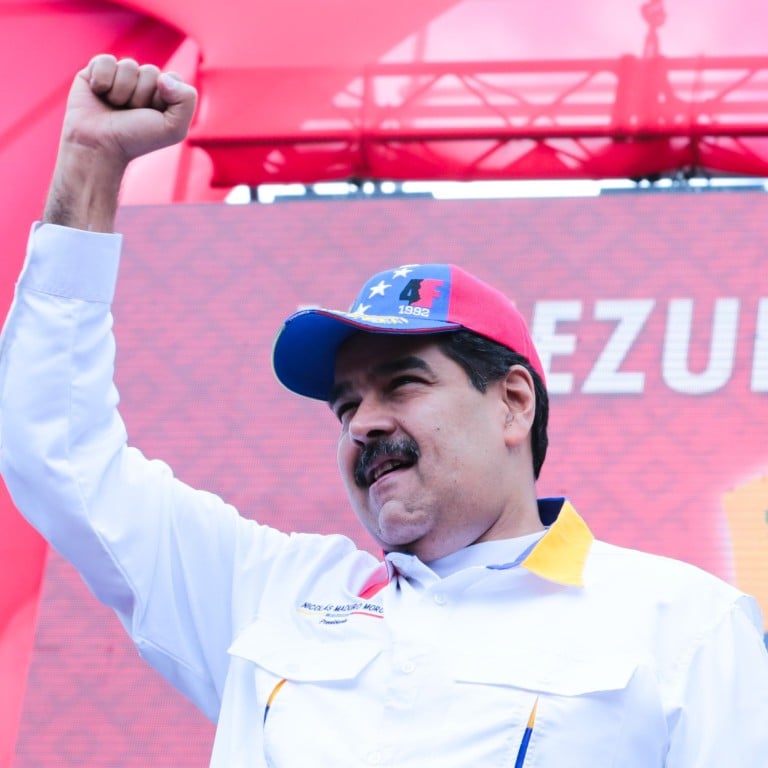
US frustrated at Venezuela president’s staying power as ally Russia props him up
- Diplomats say economic pressure, mainly US sanctions, may not be enough to dislodge Nicolas Maduro if the Venezuelan people don’t rise up
The excitement in some US and foreign diplomatic circles about the rise of Juan Guaido and an expectation for the fall of President Nicolas Maduro has been replaced by frustration over the Venezuelan leader’s staying power – and Russia’s support for him.
Maduro’s hold on Venezuela has led diplomats, foreign leaders and some Washington officials to consider that, barring military action, Maduro may be able to follow in the footsteps of other authoritarian leaders who have stayed in power despite crushing sanctions.
“Maduro has definitely shown he is more resilient than what people thought. That’s a fact,” said a diplomat from Latin America who was unauthorised to speak publicly about the regional strategy.
“If you think about what the administration said about ‘this is the end, this is the end,’ and yet Maduro is still there.”
Foreign diplomats in Washington say they got caught up in expectations raised by some in the Trump administration that Guaido would take over the government, and so are disappointed that Maduro’s regime has not yet fallen.
Confidence that Maduro’s fall was guaranteed has now turned more to hope that he will – and concern he may not.
“There was this euphoric reaction that we all felt that it was the end of Maduro,” said Fernando Carrera, Guatemala’s foreign minister in 2013 and 2014.
“I felt it. I was part of that group. I thought Maduro is gone. But, no, Guaido couldn’t make it happen. The Trump administration couldn’t make it happen. And the Chinese and Russians have raised the stakes too high.”
Trump’s special envoy for Venezuela, Elliott Abrams, said: “We do not have the ability to predict exactly when regimes like this will fall, but we do have the ability to analyse, and we are confident Maduro’s regime will eventually come to an end. The endgame for him should be to leave Venezuela, and the sooner the better, because his own situation is only going to decline the longer he clings to power and the more misery will be in the country.”
Diplomats from the region say economic pressure, mainly US sanctions, may not be enough to dislodge Maduro if the Venezuelan people don’t rise up.
Maduro has been able to keep territorial control of the South American nation despite recognition by more than 50 nations, including the United States, of Guaido as interim president, crippling oil sanctions and paralysing banking restrictions.
The Venezuelan generals the United States sees as essential to controlling the populace have stuck by Maduro despite veiled US threats of military action.
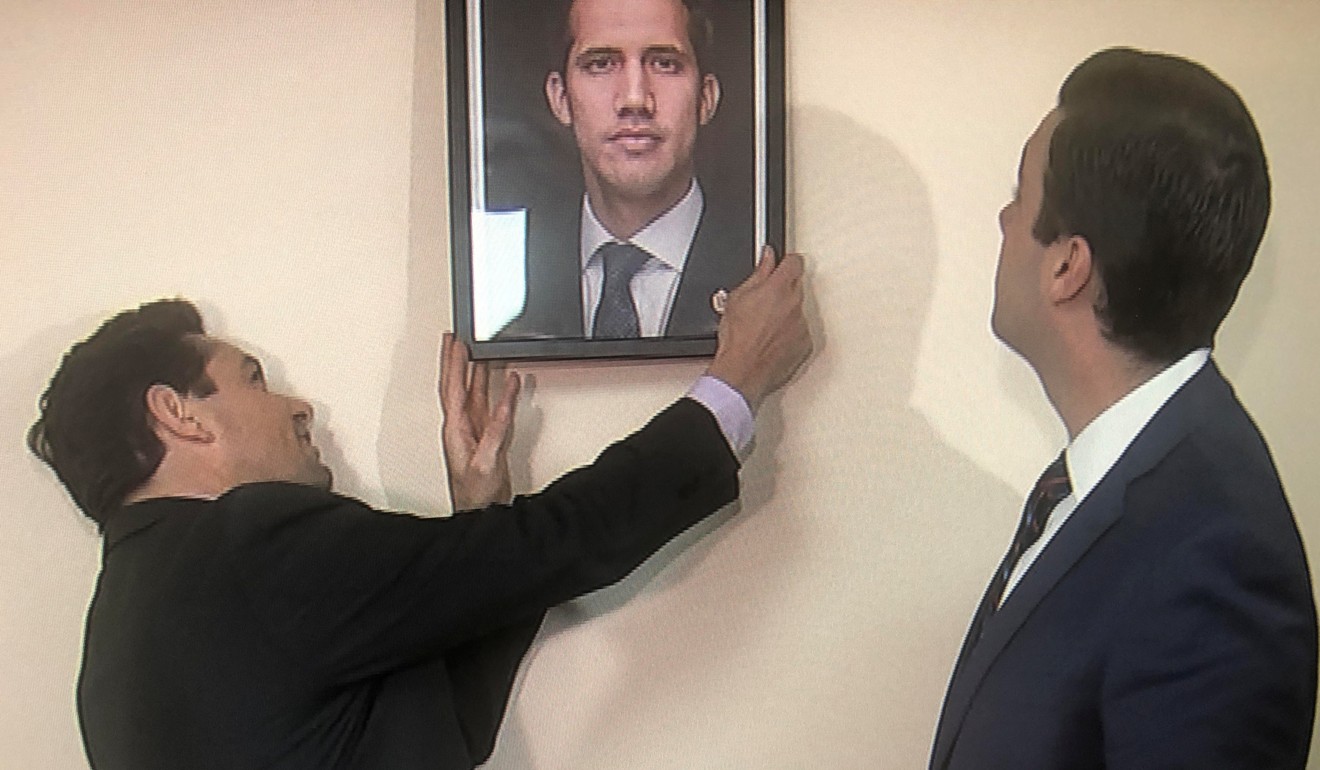
The sanctions must be given time to have an effect, some argue. Venezuela’s oil sector accounts for as much as 70 per cent of the Maduro government’s income.
Another diplomat noted that the banking sanctions – imposed in retaliation for the arrest of Guaido’s chief of staff – could also have an almost equally devastating impact on Maduro’s ability to keep his base.
“It will be hard for Maduro to pay his public servants,” said another diplomat from the region, who was unauthorised to speak publicly about the pressure campaign against Maduro.
“That will hurt a lot.”
A senior administration official said the United States and regional allies remain committed to seeing Maduro leave and democracy restored.
“The momentum remains firmly on the side of interim president Juan Guaido and the National Assembly,” the official said on the condition of anonymity.
“The overwhelming support by the people of Venezuela and within the region for a peaceful democratic transition in Venezuela has only grown stronger.”
The Trump administration continues to increase the pressure. In addition to last month’s banking sanctions, US President Donald Trump met Guaido’s wife, Fabiana Rosales, in the Oval Office where she spoke of children dying from lack of food and medicine and fears for her husband’s life.
“This is a fight of life and death,” Rosales told Trump.
“We know what will triumph in the end is life. I know that you will be part of this process.”
But with dozens of nations recognising Guaido as Venezuela’s rightful leader, Maduro is managing the country’s new status as a pariah state by largely operating outside the Western systems of trade and finance, while turning to Russia and Cuba, and to some extent China and India.
Russia’s backing of Maduro in the face of the US effort to depose him is increasingly being compared to the Kremlin’s intervention in Syria on behalf of President Bashar al-Assad.
In 2015, Russian involvement turned the tide in Syria’s civil war, preserving Assad’s power and elevating Moscow into a seeming kingmaker in the Middle East.
“There is an understanding that [Venezuela] is a rather serious test for Russia’s ability to act in defence of its interests globally,” said Dmitri Trenin, head of the independent Carnegie Moscow Centre think tank.
It is unclear whether Russian intervention will be enough to counter the nationwide blackouts and fuel shortages aggravating the humanitarian crisis.
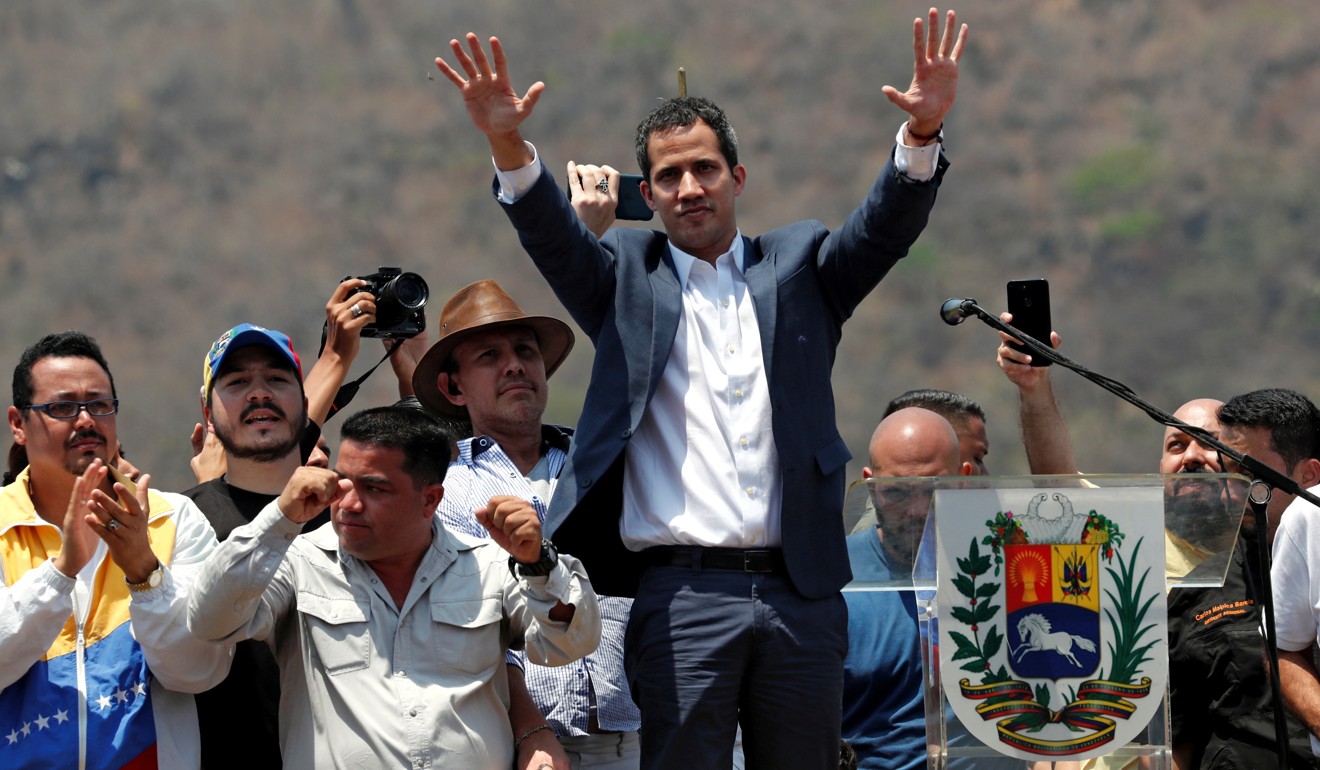
Yet, coupled with Chinese support, Russia’s efforts have appeared at least to ease some of the immediate pressures.
Abrams also said the presence of several thousand Cubans, mainly in Venezuela’s intelligence services, was troubling.
“Their presence is extremely pernicious, the same thing is true I would say of the Russian presence,” he said.
Donald Trump last week said “Russia has to get out” of Venezuela and said “all options” were open to force Russia to do so.
China – another Maduro benefactor – has offered more-subdued support. Last month, Beijing barred Guaido’s representative from a scheduled meeting in China of the Inter-American Development Bank, prompting the multilateral lender to cancel the event.
China also joined Russia to veto a UN Security Council resolution, drafted by the United States, calling for a new presidential election in Venezuela.
Yet Chinese officials – eager to defend their investment in Venezuela – have for years played both sides of the fence by holding regular meetings with Maduro’s opposition.
In February, Chinese diplomats held talks with senior opposition officials in Washington, according to two people familiar with the meetings. The opposition’s pitch: your investments will be safe if Maduro falls.
Caught in the middle of Venezuela’s power struggle, a worried China weighs its options
On Friday, Maduro’s government announced a Chinese gift of 65 tonnes of medical supplies. The announcement came on the same day that the Red Cross said it would begin distribution next month of large-scale aid for 650,000 Venezuelans facing the worst conditions.
“This aerial bridge that we are building with China represents an important investment in our people,” Maduro’s industries minister, Tareck El Aissami, told reporters in Caracas.
Russian cooperation with Venezuela dates to arms deals struck with Hugo Chavez – Maduro’s predecessor and socialist mentor.
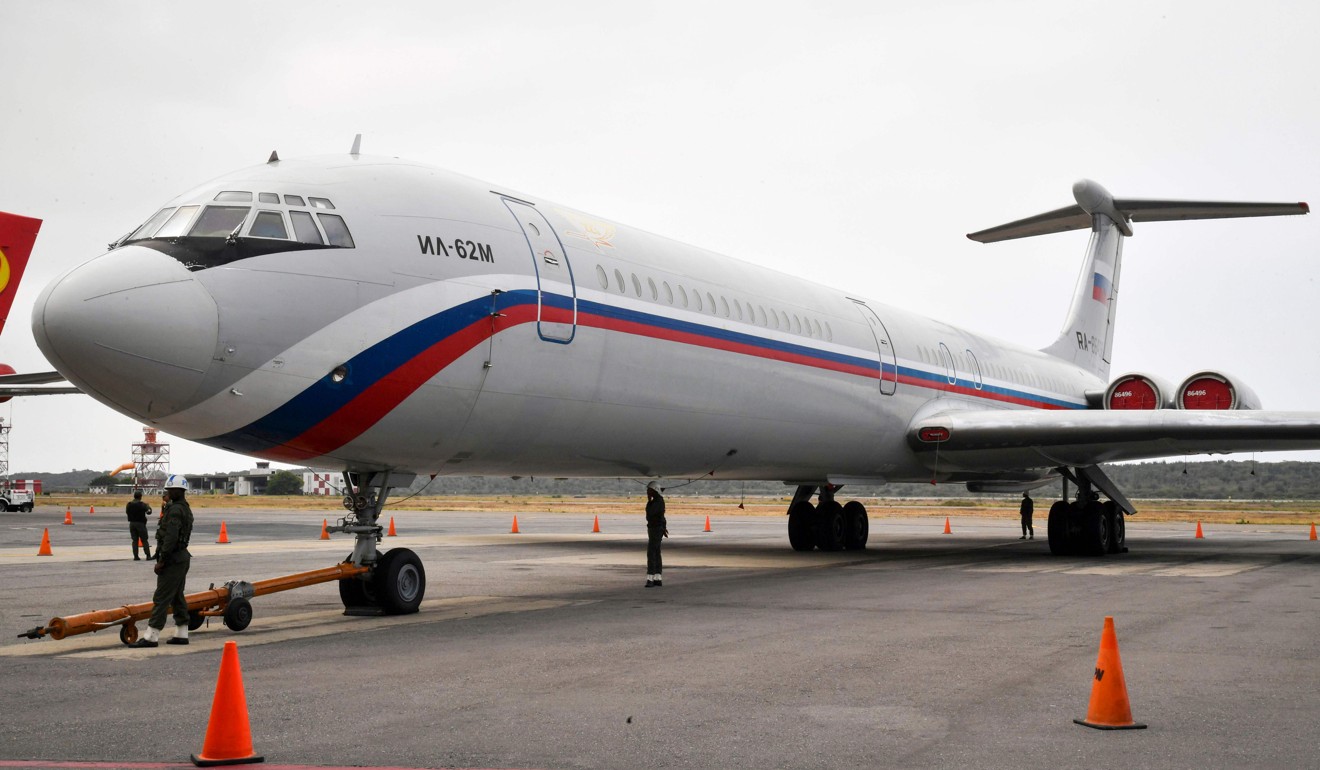
Between 2006 and Chávez’s death in 2013, Venezuela bought nearly US$4 billion in Russian military equipment, including an estimated 5,000 MANPADS surface-to-air missiles.
Military cooperation led to massive Russian investments in Venezuela’s oil sector, and a willingness to extend loans on favourable terms.
Yet economic lifelines may be more important for Maduro’s survival.
US sanctions issued in January blocked Venezuela from selling its crude to the US refineries designed to process its high-viscosity crude.
Last month, shipping in and out of Venezuela has been chaotic amid nationwide power blackouts. But at least one tanker left Venezuela for India, carrying Venezuelan crude to a partly Russian-owned refinery, said Russ Dallen, a Florida-based managing partner at the brokerage Caracas Capital Markets.
Before the US sanctions, Venezuela exported crude to the United States and imported the fuel refined from it. The sanctions left Maduro struggling to address a sudden shortage of fuel.
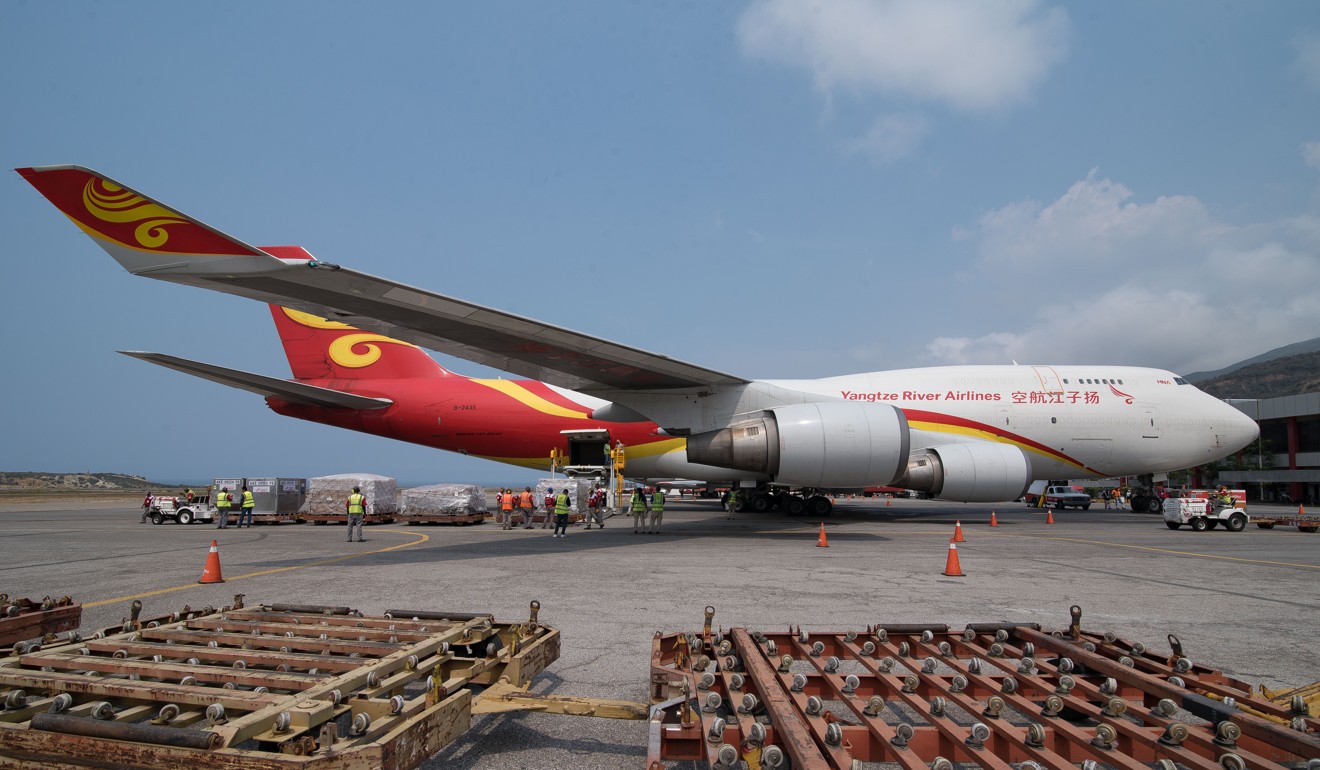
Ivan Freitas, a union leader for state-owned oil company Petroleos de Venezuela, known as PDVSA, said that reports from port workers with access to vessel schedules show that Russia’s Rosneft delivered at least one shipment of 300,000 barrels of fuel to Venezuela in February, with roughly 1.6 million more barrels expected to arrive but not yet confirmed.
“Rosneft has become the saviour of PDVSA,” Freitas said.
Self-declared leader of Venezuela Juan Guaido extends olive branch to China, wants ‘productive and mutually beneficial relationship’
“The company’s help is buying time … for Maduro.”
Rosneft did not respond to a request for comment.
Russian help extends beyond the oil industry. In February, Moscow delivered 7.5 tonnes of medical supplies and pledged to ship 7.7 tonne more. Though of minimal help in light of the massive problems confronting understaffed, undersupplied and deteriorating hospitals across Venezuela, the Russian aid provided Maduro with a public relations coup.
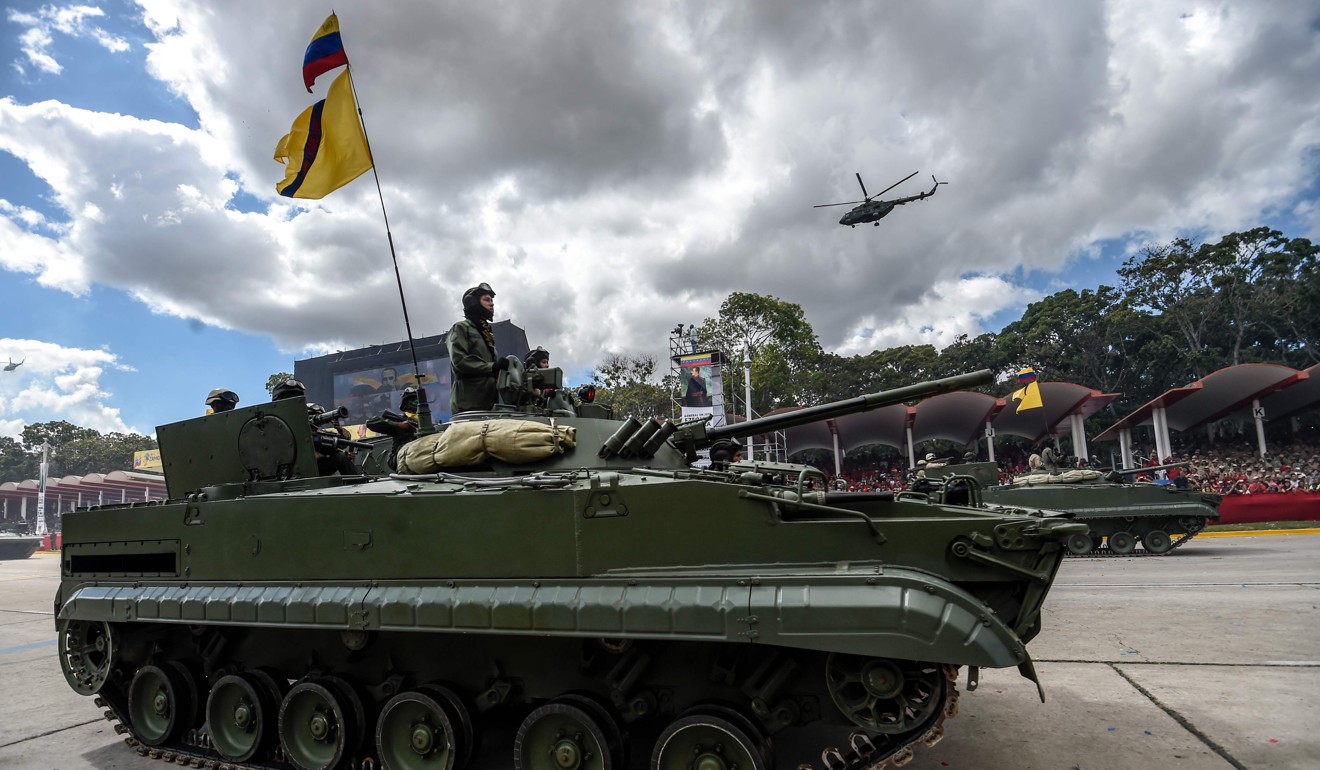
“Relations between Russia and Venezuela are excellent,” Alexey Seredin, minister counsellor at the Russian Embassy in Caracas, said in an interview.
“At the moment, we are working to strengthen cooperation.”
History shows that sanctions alone are not necessarily the most effective way to force regime change, said Robert Litwak, a former director for non-proliferation for the National Security Council, who is now a vice-president at the Woodrow Wilson Centre.
“If one looks at the record, one can’t find a case were economic sanctions on their own produced a change of regime,” Litwak said.
“Look, Cuba has been sanctioned for 60 years. We’ve had the most rigorous sanctions. People are driving cars from the 1950s and they’ve circumvented sanctions. But it hasn’t collapsed the regime.”
Litwak said the United States heavily sanctioned Iraq, Libya, North Korea and Iran was unable to achieve the goal of regime change.
Tribune News Service, The Washington Post, Agence France-Presse
